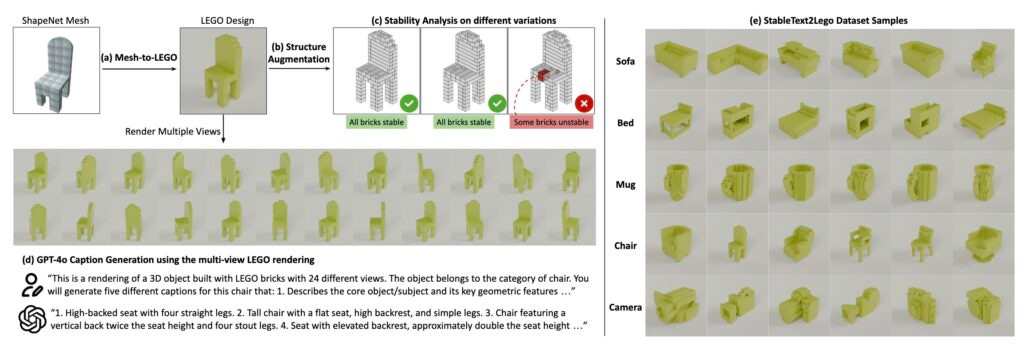GSV's AI News & Updates (05/16/25)
Perplexity $14B Valuation, AI and Critical Thinking, Google AI Futures Fund, YouTube AI Ads, Klarna Slows AI Job Cuts, OpenAI's Safety Tests, AI Deregulation in Budget Bill
General 🚀
OpenAI brings its GPT-4.1 models to ChatGPT: Offering improved coding and instruction-following capabilities over GPT-4o. Despite being faster and more precise, GPT-4.1 is not considered a "frontier model" and therefore skipped the more rigorous safety reporting required for cutting-edge releases. The release also coincides with OpenAI's potential $3B acquisition of Windsurf.
AI Startup Perplexity’s Valuation Surges to $14 Billion in New Funding Round: Perplexity is raising $500 million in a funding round led by Accel, valuing the company at $14 billion, up from $9 billion just six months ago. The rapid valuation increase highlights investor confidence in Perplexity’s potential to challenge Google’s dominance in search, as it offers a more conversational, AI-driven alternative.
YouTube announces Gemini AI feature to target ads when viewers are most engaged: The new ‘Peak Points’ AI-driven ad targeting feature that analyzes video frames and transcripts to identify the most engaging moments for ad placement. This move aligns with Silicon Valley's broader push to monetize AI, with Google betting that precision-targeted ads will boost revenue and improve creator earnings.
TikTok launches TikTok AI Alive, a new image-to-video tool: The tool uses AI to add movement and atmospheric effects, turning still images like beach photos into animated videos with drifting clouds and crashing waves.
SoftBank’s $100B Stargate AI Project Hits Tariff Roadblocks: Despite the hurdles, SoftBank remains committed to the project, aiming to establish the world’s largest AI training facility in Abilene, Texas, as part of a broader push to dominate the AI infrastructure market.
OpenAI negotiates with Microsoft to unlock new funding and future IPO: Microsoft, OpenAI’s largest investor, is seeking to retain long-term access to cutting-edge AI models in exchange for giving up some of its equity stake in the restructured company. OpenAI has raised over $40B from backers like SoftBank and Thrive Capital, but its ability to convert to a public benefit corporation is crucial for unlocking further funding.
Google launches new initiative to back startups building AI: Unlike traditional accelerator programs, the AI Futures Fund evaluates startups on a rolling basis without fixed application windows, providing flexible support based on each company’s stage and needs.
At OpenAI, Fidji Simo to Bring Lessons From Instacart and Meta
Education and the Future of Work 📚
A.I. Will Destroy Critical Thinking in K-12: Critics argue that AI tools can encourage surface-level learning without building the deeper reasoning and problem-solving skills essential for critical thinking. Even young students express skepticism about AI's role in education, fearing it signals a lesser form of care and attention from teachers.
LinkedIn cofounder says students should expect tests to get harder to cheat with ChatGPT — and to involve an AI examiner: Hoffman argues that universities must break from outdated teaching methods and adapt their assessments to the reality of AI, moving beyond rote memorization to foster deeper critical thinking. While AI can simplify traditional assignments, it also presents a chance for educators to redefine learning and develop more rigorous evaluation methods, potentially including AI-assisted oral exams.
‘We Have to Really Rethink the Purpose of Education’: Winthrop argues that education must move beyond rote knowledge transmission to fostering deep engagement, curiosity, and the ability to navigate an uncertain world, emphasizing skills like creativity, problem-solving, and critical thinking.
Meta-Analysis Shows ChatGPT Significantly Boosts Learning, Best in Problem-Based Scenarios: A new study from Hangzhou Normal University found that ChatGPT has a strong positive impact on student learning performance (g = 0.867), with moderate benefits for learning perception (g = 0.456) and higher-order thinking (g = 0.457). Longer-term use sometimes led to diminishing returns, possibly due to over-reliance on the AI tool for critical thinking tasks.
Audible to Partner With Publishers to Create AI-Voiced Audiobooks: Publishers can choose from over 100 AI-generated voices across multiple languages. Over 60,000 self-published titles on Audible are already using AI voices.
Klarna Slows AI-Driven Job Cuts With Call for Real People: The company is piloting a new cohort of remote customer service agents, aiming to restore human interaction while maintaining the efficiencies of AI. Despite scaling back layoffs, Klarna remains committed to integrating AI into its operations, including plans for a digital financial assistant that can negotiate on customers' behalf.
Built to Stay Small: Inside the Org Charts of AI-Native Startups: Companies use AI to consolidate tasks that would traditionally require multiple specialists, allowing a single person to handle multistep processes. These startups prioritize cross-functional skills, betting that broader, end-to-end understanding of the business will be more valuable than narrow specialization.
CEO Satya Nadella says up to 30% of Microsoft's code is now written by AI
Tech 💻
Emerging Developer Patterns for the AI Era: Prompts can be treated like source code, dashboards can become conversational, and docs are written as much for machines as for humans. We’re not just coding differently, we’re designing tools for a world where agents participate fully in the software loop.
Google DeepMind creates super-advanced AI that can invent new algorithms: AlphaEvolve uses an "evolutionary" approach to generate and refine algorithms.It has already optimized Google's Borg cluster management, reducing data center computing costs by 0.7%, and discovered a more efficient matrix multiplication algorithm, potentially redefining the core of AI computation.
New Lego-building AI creates models that actually stand up in real life: Researchers aim to expand the model's brick library and increase the variety of structures it can generate, potentially revolutionizing automated design in physical robotics and assembly.
Google dominates AI patent applications: Nvidia (80), IBM (61), Intel (43), and Microsoft (42) round out the top five.
Safety and Regulation ⚖️
‘It cannot provide nuance’: UK experts warn AI therapy chatbots are not safe: Critics warn that replacing human connection with AI could undermine relationships and disrupt the emotional support networks that friends and therapists provide.
OpenAI pledges to publish AI safety test results more often: The hub will track metrics like harmful content generation, jailbreaks, and hallucinations, with plans to expand as evaluation methods improve. This move follows criticism over rushed model releases and a high-profile rollback of the GPT-4o update due to excessive sycophancy and validation issues.
xAI’s Grok suddenly can’t stop bringing up “white genocide” in South Africa: Grok kept bringing it up in response to seemingly unrelated posts. The issue was reportedly due to an "unauthorized modification," and responses have since been corrected to address actual user prompts.
Trump Fires U.S. Copyright Office Director Over AI Dispute: The move raises concerns about the future of copyright protections as AI companies push for broader access to copyrighted material for training purposes.
US Treasury examining Benchmark Capital’s ties to Chinese startup Manus AI: The Treasury's decision could set a precedent for how strictly the US enforces its outbound investment rules in the context of AI.
House Republicans Push for AI Deregulation in Budget Bill: House Republicans have included language in a budget reconciliation bill that would block states from enforcing AI regulations for the next 10 years. The provision covers a wide range of technologies, including generative AI models and automated decision systems, potentially nullifying existing laws like California’s AI disclosure rules and New York’s bias audit mandates, effectively rolling back years of state-led oversight.
Deepfakes, Scams, and the Age of Paranoia: Job scams have surged, with reported losses in the U.S. growing from $90 million in 2020 to $500 million in 2024, driven by more realistic deepfakes and impersonation tactics. Companies like Tools for Humanity, Ropes, and GetReal Labs are emerging to tackle this problem, offering biometric verification and deepfake detection.
Singapore’s Vision for AI Safety Bridges the US-China Divide
Other
Saudi Arabia Launches AI Venture 'Humain': The launch coincides with Donald Trump’s visit to Riyadh, where major AI investment deals are expected. Backed by the $940 billion Public Investment Fund (PIF), Humain plans to build AI data centers and develop advanced Arabic language models to serve the Middle East.
Perplexity partners with PayPal for in-chat shopping as AI race heats up





